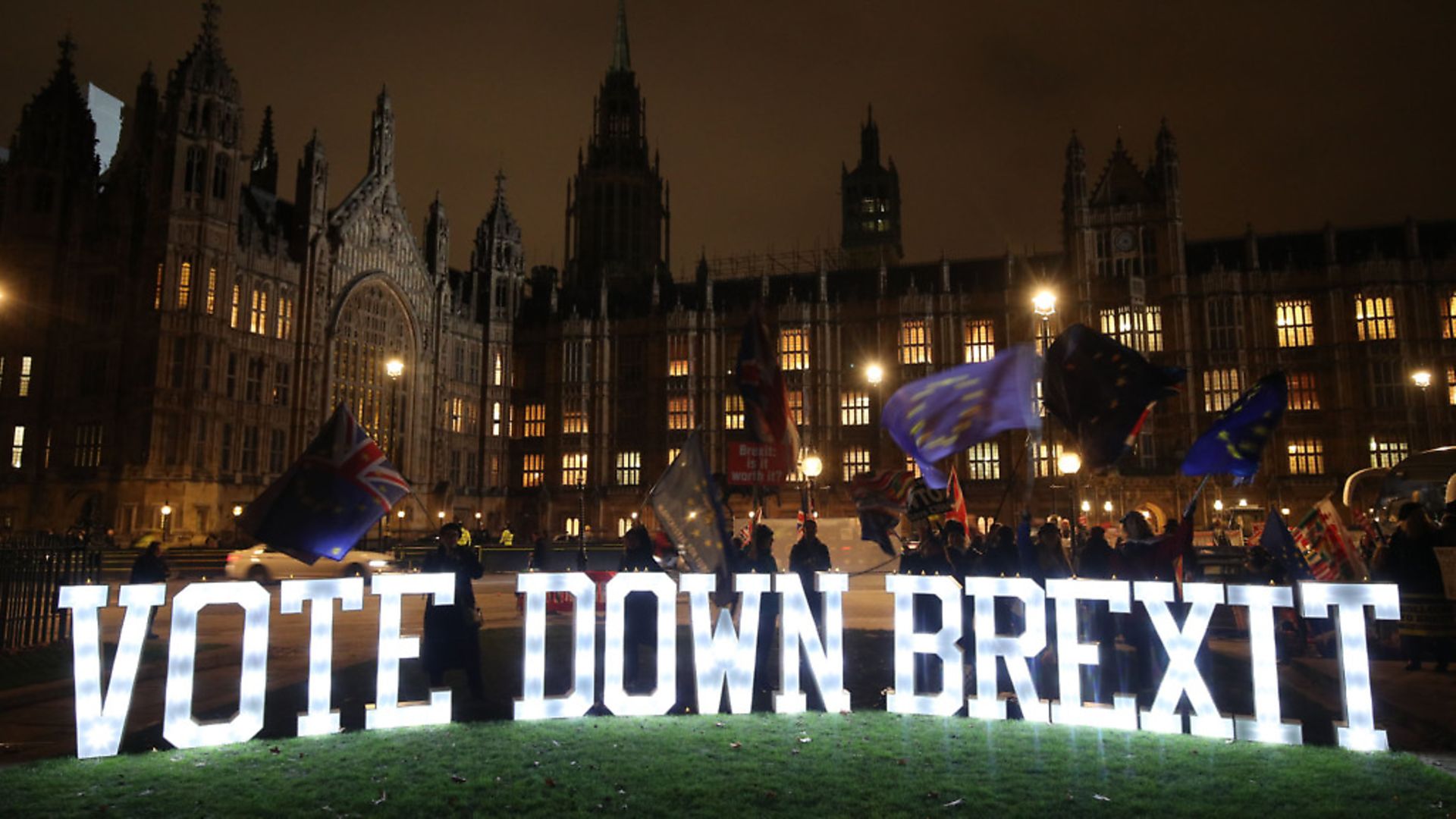
Support for a new public vote on Brexit has surged in the days since Theresa May’s Brexit deal was decisively rejected by MPs for a second time, according to a new YouGov poll.
The poll shows that the public, which was more or less evenly divided on this question six weeks ago, would now back the people being given the final say on Britain’s future relationship with the EU by a margin of 57% to 43% when excluding the ‘don’t know’ responses.
This week, a number of alternative Brexit deals are likely to be proposed by MPs who insist the UK must leave the EU if they are to ‘honour the result of the 2016 referendum’. But there is little encouragement for supporters of a soft Brexit like the Norway option, which protects the economy from deep damage but also means being bound to many European rules over which we would have no real influence.
Just one in four voters said that a Brexit deal that allowed freedom of movement rules to continue largely unchanged would honour the result of the last referendum. This ratio grows to barely one in eight when people are asked about the prospect of Britain still having to follow many of the rules and regulations made by the EU, as well as making continued payments to the Brussels budget.
Overall, the Norway option is favoured by 13% of the public when forced to choose between that and staying the EU (supported by 40%) and leaving with any deal at all (backed by 34%).
Although almost half of those surveyed believe the no-deal option would honour the result of the 2016 referendum, that proportion slumps to barely a quarter (26%) if such an outcome resulted in ‘significant losses of trade, investment and growth’.
The poll of 1,823 people conducted in the last few days – the first significant piece of polling since the prime minister’s defeat – shows that support for leaving the EU falls significantly when people are faced with a specific Brexit option.
While 41% of voters still believe it was ‘right decision’ to leave the EU compared to 49% who say it was the ‘wrong decision,’ backing in a new referendum for a no-deal departure would fall to 38% and to just 32% if it was on the terms negotiated by Theresa May.
Other important findings from this poll suggest:
• The public are losing faith in politicians’ ability to fix this mess, with just 12% saying that parliament will be able to solve the crisis on its own.
• A higher-than-usual proportion of the public would take part in European elections if they are held this summer – with 55% of people who voted Remain and 40% of those who voted to Leave saying they are ‘certain’ to turn out.
• If the prime minister is forced to step down, Sir Keir Starmer, Labour’s shadow Brexit secretary, has emerged as the surprise second choice favourite among members of the public – behind Boris Johnson – to take charge. Significantly, Starmer is preferred over Jeremy Corbyn even among Labour voters.
A view from Peter Kellner – past president of YouGov and one of Britain’s most respected pollster
Two findings from this survey should terrify politicians on all sides.
First, the sense of crisis has intensified. Last month, an already-worrying 33% felt that ‘the UK faces a major national crisis’. This number has now jumped to 42%. A further 34% think ‘parliament is having difficulties which it may not be able to resolve on its own’ – little changed on last month’s 36%. The figure for those who are less fearful, or not sure, is down from 31% to 24%.
Second, the public is polarised. Most voters oppose the government’s Withdrawal Agreement. If a referendum were held today, likely voters divide 61% to 39% in favour of Remain rather than leaving on the terms negotiated by Theresa May.
At the same time, few people think that the main features of soft Brexit – sometimes labelled as ‘Norway-plus’ or ‘Common Market 2.0’ – honour the result of the 2016 referendum. This applies in particular to the vexed issues of freedom of movement and payments into the EU budget.
It is increasingly clear that the attempts to find a compromise that can bring voters together will fail. Far from attracting support from Leave and Remain supporters, they alienate large numbers in both groups.
The polarisation and mounting sense of crisis have boosted support for a fresh referendum. Six weeks ago, the public was evenly divided, with 42% supporting a public vote and 41% opposed. Today, support has climbed to 48%, while opposition has fallen to 36%. This is a 57% to 43% split when ‘don’t knows’ are excluded.
The generation gap on the referendum issue should also give politicians cause for concern. People aged 50 or over divide fairly evenly: 47% support a public vote, while 53% are opposed. But the under 50s favour a new referendum by more than two-to-one: 68-32%.
There has been much discussion of the possible resentment of older Leave voters should a fresh referendum be held. At least as much thought should, perhaps, be given to the possible reaction of younger Remain, pro-referendum voters should they be required to live the rest of their lives outside the EU and without the opportunity to vote on the final result of the current negotiations.
MORE: Get your FREE Bollocks to Brexit mug when you subscribe for just £13









